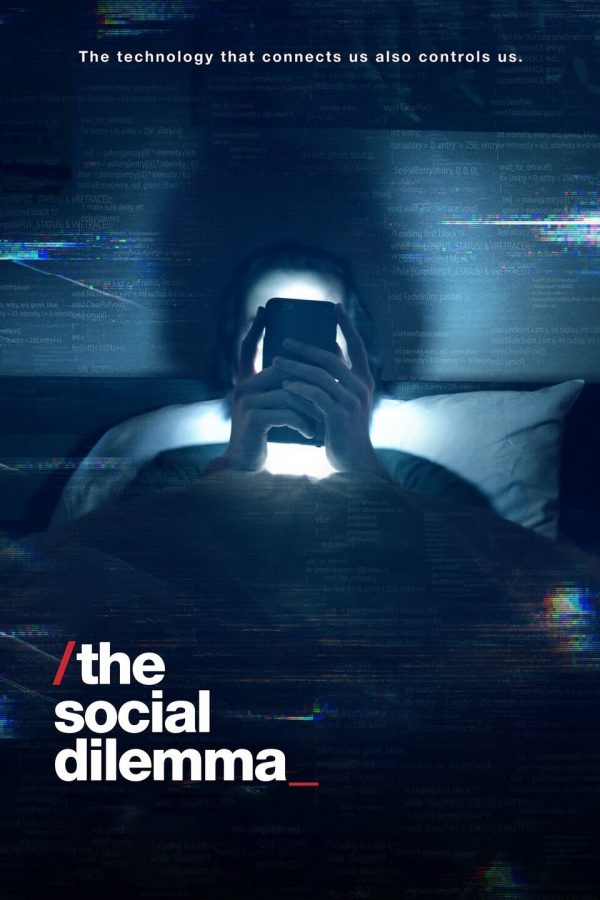Docudrama ‘The Social Dilemma’ Will Change Your Perspective on Tech
(Courtesy Netflix)
February 7, 2021
“The Social Dilemma” is Netflix’s new docudrama being discussed at dinner tables across the country, at the same time that our fingers text and tap compulsively on phone screens beneath. The Sundance-selected film calls together tech CEOs active during the social media boom of the early 2000s to come face to face with the algorithms and revenue models they designed, and how they are altering the fabric of our society.
In Theory
Like any reputable documentary, “The Social Dilemma” is thorough in its chilling research. Calling together the fields of social media, software development, and business models and juxtaposing them against their never-before-seen repercussions in interpersonal relationships, political beliefs, and trust in democracy itself makes for one compelling of a film.
For covering a topic that seems so commonplace, especially in a time where we as a society have spent more time on our screens than ever before, the documentarians do an excellent job of interviewing the people behind this tech. We see a former Pinterest president who found himself addicted to the platform and now won’t let his children have accounts. We see an interface designer who wrote software to break his addiction to reading Reddit threads. We see Tristan Harris, a former design ethicist at Google, who is now calling on social media platforms to completely change their business models away from monetization, and towards the end of protecting humanity.
His founding of the Center for Humane Technology is a big feature of this film, as the conclusion he reaches is how to use the tools we’ve created to better society. “We can demand that these products be designed humanely. We can demand to not be treated as an extractable resource. The intention could be: ‘How do we make the world better?’” said Harris in the film.
In Practice
The dramatization of an individual’s experience in “The Social Dilemma” was truly haunting. You see a family discuss social media at the dinner table, and watch as each individual member faces their own unique technological manipulation — an older brother falls prey to the enticing headlines of radical political stances, a young sister alters her appearance online to the point that what she sees in the mirror is upsetting. And yes, these are stories that not everyone will face, but the documentary aspect of the film backs up the stories with facts like the soaring rates of depression in young girls and pressing political polarization engineered by the algorithms.
The aim of “The Social Dilemma” is to prove you are not in control online. We are not the consumers — “We’re the product,” said Facebook co-founder Justin Rosenstein in the film. “Our attention is the product being sold to advertisers.” In front of him rolls a black screen against eerie instrumental music. A quote from statistician Edward Tufte reads, “There are only two industries that call their customers ‘users’: illegal drugs and software.”
Conclusion
If you are someone who has been wincing at their screen time notifications, feeling worse when you come up from your phone for a gulp of air, or looking at the world around you with a perspective of hopelessness in the wake of technology, I strongly encourage you to turn on this film, turn off your phone, and take it all in. It will change the way you view technology entirely.








